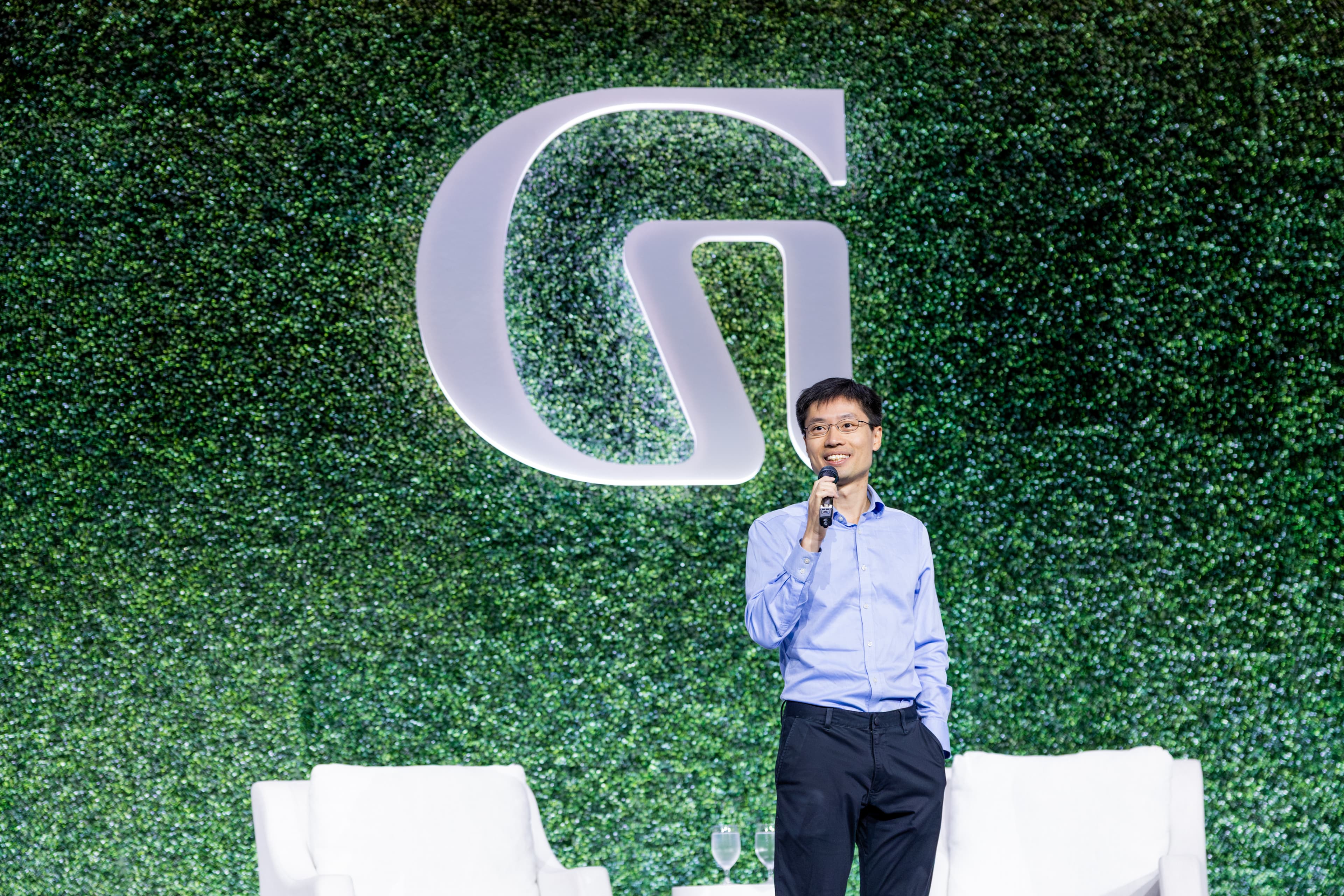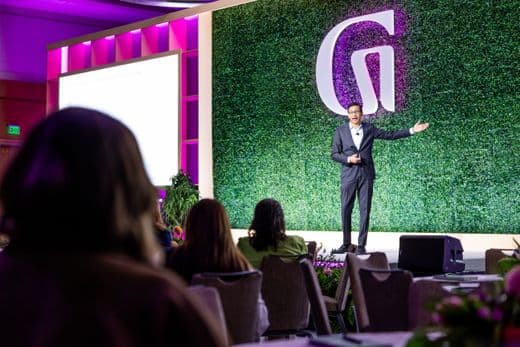Compass Staff |
The country’s most charismatic math teacher has a message for today's workers, the organizations employing them, and students who aren’t yet in the workforce:
If you're an expert in math, focus on creativity, emotion, and the stuff that separates humans from machines and won’t go obsolete. As AI gets smarter, the premium on ingenuity will become greater.
If you're a creative type, then learn math, because math skills will help you create things, identify hidden patterns, and solve problems you've never seen before.
These are the twin imperatives of the human + AI era, according to Po-Shen Loh, the Carnegie Mellon math professor and a former coach of the U.S. International Math Olympiad team who has earned renown for his energetic, humorous lectures to students and businesses about AI. To Loh, the key to survival in this brave new AI world is simple on its face: knowing how to solve problems — and knowing which problems to solve.
“The world has changed so fast because of all these AI tools that might replace the people,” Lo said, speaking at Guild Opportunity Summit 2025 on Tuesday. “But I believe people matter.”
To illustrate his point, Lo shared a screenshot of a highway billboard urging senior management of companies to replace human workers with AI.
“There’s a big danger if people decide to use AI to replace learning in general, because that will take the empathy out of it.”
- Po-Shen Loh
“I’m not sure about you, but these signs don’t make me happy,” Lo added. “Do I use a person, or do I use an AI? I actually still like people, but I will be honest: I’m much more picky about the people.”
Though applicable to everyone who touches AI, Loh’s insights serve as a to-do list for HR leaders: Elevate curiosity and critical thinking in hiring, cross-train creatives in math, and ensure skills are applied — not just taught — through coaching, stretch assignments, and internal mobility.
Here are the key takeaways from his keynote address at Guild Opportunity Summit 2025:
On loving learning
“Today, I’ve got a buddy. His name is Claude. Claude is darn good at computer programming; I used to have more software engineers than I do now. But now I’m looking for people with really strong people understanding. I want to find someone who’s going to be able to grow with us and who love learning.
“One of my interview questions is, 'when’s the last time you taught yourself something, and why did you do it?' I’m looking for this characteristic of loving learning. I also want people to have some critical thinking ability. That is something that I do not see taught in school.”
On critical thinking
“Let’s do some math. What do you think this question says: 1 − 2 + 3 − 4 + 99 − 100? This is a weird question on purpose. There is no formula for this. I’m not actually expecting an answer. I’m just looking to see how people think. The first thing I want to see when I hire anyone is whether they know there are patterns in stuff.
“My test of intelligence is whether you can do something that you have literally never thought about before. I want to see how you think when you don’t know what to do. That’s called critical thinking. What you don’t normally do in school. A lot of school is about someone telling you this is how you do it. That is how you make robots.”
On the dangers of deferring to AI for thinking
“AI has made it so that anybody who really wants to learn something can learn it. It has also made it so that anyone who wants to turn in homework that is perfect can do it. Notice these two things are not the same. If you want to learn anything, discuss with the AI. But then you need to learn how to learn. When the AI tells you something, you ask it why. That’s why we teach math. We want to teach everyone how to be able to think, analyze, and never take anything as 'it’s because people told you.' There’s a big danger if people decide to use AI to replace learning in general, because that will take the empathy out of it. We also actually want to teach people how to be people.”
On being thoughtful
“Thoughtful people like other thoughtful people. Make sure they can find other people like that. My number one [requirement] is you love people. The next piece is, they really like thinking.”
On loving people
“Just thinking is fun. I actually don’t think it’s important for people to learn fancy math. Everyone should learn how to look at questions, assemble basic ideas in weird ways and say, ‘Hey, I can do that.’
“If you think video games are addictive, you haven’t seen the power of the AI girlfriend and AI boyfriend. [It] will suck in an entire generation soon. This is probably going to cause a major population decline in the world.
“We need to make sure that they, number one, people love people. That will also give them enough motivation to keep learning. Otherwise, they will find out they can get it from AI or a life like the movie WALL-E.”
Make way for a ‘thoughtful’ revolution.
Loh reminds us that the AI revolution may be powered by machines, but its future will be written by people. The future won’t belong only to those with the most technical skills, but to those who are most “thoughtful” — the curious, the critical thinkers, and the lifelong learners. As Loh makes clear, it’s time to upgrade not just our tools, but ourselves.



